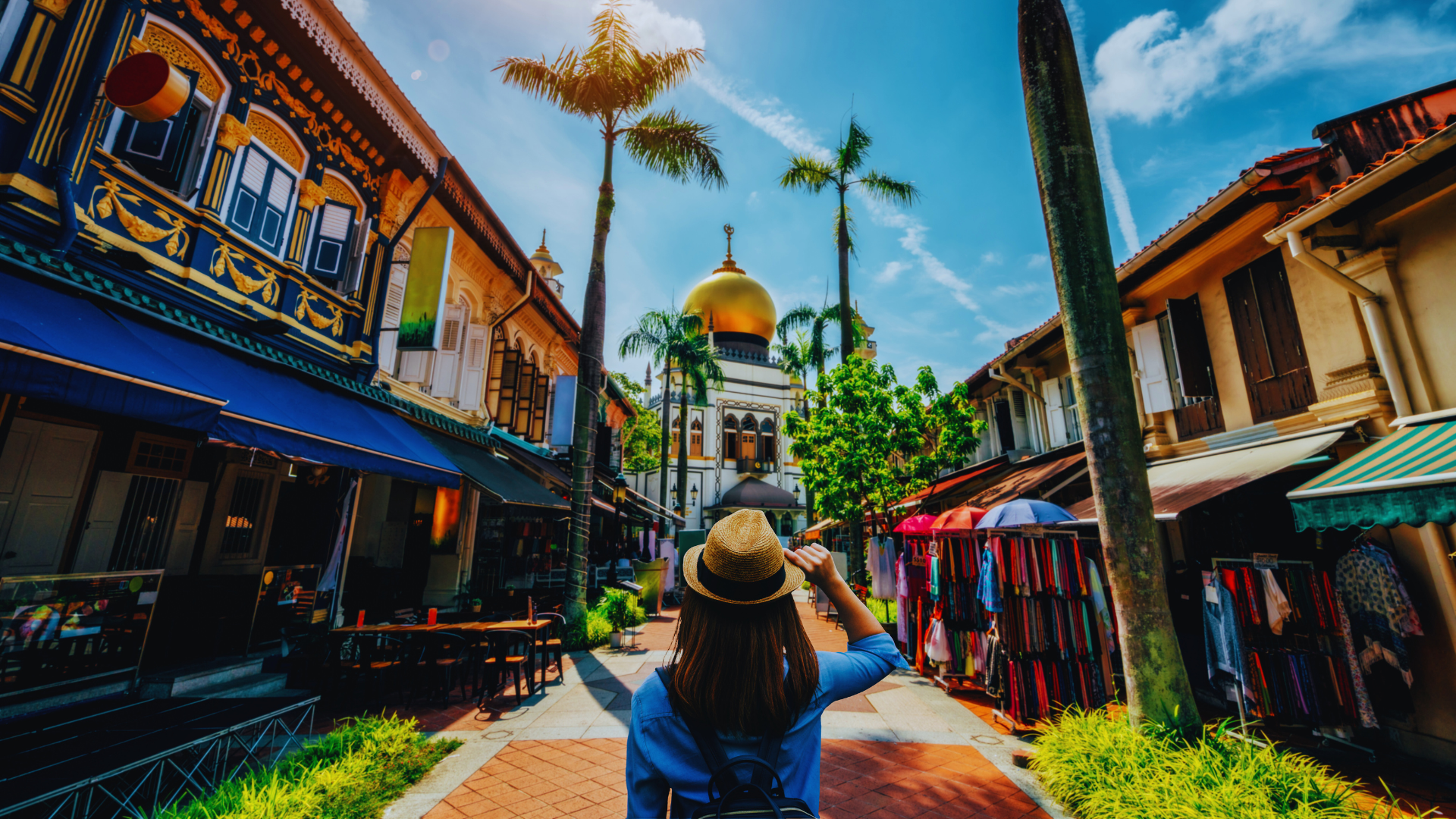Travel offers unique opportunities to experience the world beyond textbooks and lectures. By visiting historical sites, travelers gain firsthand insight into the events that shaped global history. These experiences foster a deeper appreciation of different cultures and perspectives, enhancing one’s understanding of how historical events influence contemporary society.
Exploring diverse regions allows individuals to witness the tangible remnants of the past, whether through ancient ruins, museums, or local traditions. Each location tells a story that connects the traveler to important milestones and movements that have impacted humanity as a whole. Engaging with local communities further enriches this understanding by providing context to events that may seem distant or abstract when viewed solely through a scholarly lens.
Through travel, individuals not only learn about history but also connect emotionally to it. This journey transforms knowledge into lived experience, emphasizing the interconnectedness of people across time and space. Understanding this relationship enhances one’s awareness of global issues and encourages a more inclusive worldview.
Why Travel Deepens Your Understanding of Global History
Travel immerses individuals in diverse cultures and historical contexts, enhancing their understanding of global history. Engaging directly with different societies broadens perspectives and fosters empathy.
Connecting Personal Experiences With Historical Context
Experiencing history firsthand offers a unique lens that enriches one’s understanding. Visiting historical sites or museums allows travelers to connect personal narratives with broader historical events. For example, standing in the ruins of an ancient civilization can evoke personal reflections that resonate with recorded history.
Participating in local traditions and ceremonies helps travelers see historical influences in everyday life. This direct exposure makes abstract historical events more tangible and relatable. As visitors interact with locals, they gain insights that textbooks alone cannot provide.
Challenging Prejudices and Stereotypes
Travel encourages openness and confronts preconceived notions about cultures. Engaging with diverse populations helps dismantle stereotypes that may have been formed through limited media portrayals or education.
In real-life interactions, travelers discover the complexity and richness of cultures that often defy simple categorizations. They may find that shared human experiences—such as family, art, or struggles—transcend cultural boundaries. This newfound understanding promotes critical thinking about global issues.
Fostering Curiosity and Empathy
Experiencing different cultures sparks curiosity and enhances empathy. Travelers often find themselves asking questions about customs, histories, and societal norms that differ from their own. This intrinsic desire to learn allows for deeper reflection on global interconnectivity.
Empathy is cultivated through personal engagement and storytelling. Hearing individual experiences around historical events can create a sense of connection. This emotional engagement transforms abstract historical narratives into heartfelt stories, prompting a more nuanced grasp of global history.
Cultural Immersion and Its Role in Historical Awareness
Cultural immersion offers unique insights into history by fostering connections with local communities and their customs. Engaging deeply with a culture enhances understanding of historical narratives and the diversity of perspectives.
Interacting With Local Communities and Heritage
Engagement with local communities allows travelers to witness heritage in action. Participating in community activities, such as festivals or traditional ceremonies, provides direct insight into historical practices and values.
Through dialogue with locals, travelers learn about significant events and traditions that have shaped their societies. This first-hand experience enriches their perspective on history, revealing complexities that textbooks often overlook.
Embracing Local Customs and Diverse Backgrounds
Adopting local customs facilitates deeper cultural exchange. When travelers immerse themselves in everyday life, they witness how historical events influence current practices.
For instance, learning traditional crafts or participating in rituals showcases the evolution of a culture. Understanding these customs illuminates the connections between past and present, enhancing historical awareness.
Language, Communication, and Dialogue
Language serves as a key to unlocking cultural understanding. By learning local languages, travelers can communicate more effectively with residents, leading to richer interactions.
Effective dialogue fosters a sense of belonging and opens up discussions about historical legacies. Furthermore, understanding local idioms and expressions conveys nuances of cultural identity, which shapes historical narratives.
Exploring Local Art, Cuisine, and Traditions
Local art and cuisine reflect a community’s history and values. Travelers who engage with these elements gain insights into the stories behind various traditions.
Culinary adventures, for example, reveal the influence of historical events, migration patterns, and available resources. Sampling traditional dishes allows travelers to appreciate the rich tapestry of cultural influences that have shaped the region’s history.
Personal Growth Through Historical Travel Experiences
Traveling through historical destinations can foster significant personal growth. Exposure to diverse cultures and histories enhances adaptability and encourages introspection. Engaging with different environments allows travelers to cultivate resilience and creativity.
Building Adaptability and Resilience
Traveling to historical sites often presents unexpected challenges, such as language barriers or unfamiliar customs. These situations require individuals to think on their feet and adjust their plans.
By navigating new environments, travelers develop adaptability. This skill translates into greater resilience, as they learn to tackle problems proactively.
Through such experiences, they gain confidence in their ability to handle change. This newfound resilience can apply to life back home, where challenges may seem less daunting.
Encouraging Self-Reflection and Self-Discovery
Historical travel encourages deep self-reflection. Visiting places with rich histories prompts individuals to consider their own beliefs and backgrounds. Engaging with local narratives can challenge preconceived notions.
As travelers explore different perspectives, they may discover aspects of themselves that they were previously unaware of. This journey of self-discovery can lead to personal transformation.
Moreover, reflecting on gratitude for one’s own experiences further enriches this process. Understanding various historical contexts allows for a renewed perspective on one’s own life and choices.
Enhancing Cognitive Flexibility and Creativity
Exposure to different cultures stimulates cognitive flexibility. Engaging with diverse viewpoints and traditions can spark new ideas. Travelers learn to approach problems with an innovative mindset.
Creative problem-solving skills may improve as individuals face unique scenarios while traveling. This creativity can enhance both personal and professional aspects of life.
Additionally, curiosity about other cultures fosters an appreciation for diversity. This appreciation enriches personal interests and broadens one’s worldview. By embracing new experiences, individuals build a versatile skill set that supports ongoing personal growth.
The Impact of Travel on Shaping Global Citizenship
Travel serves as a powerful catalyst for shaping global citizenship by breaking down barriers, fostering mutual understanding, and promoting compassionate engagement across cultures. Through diverse experiences, individuals confront biases and cultivate a deeper appreciation for human diversity.
Breaking Down Barriers and Biases
Travel exposes individuals to different cultures and lifestyles, challenging preconceived notions. By interacting with local communities, travelers gain firsthand experiences that can dismantle stereotypes.
This exposure encourages critical reflection on personal biases, promoting a more nuanced understanding of global issues. It allows for shared narratives that transcend borders and highlight interconnectedness, emphasizing that common human experiences unite people across the globe.
Cultivating Compassion and Tolerance
Engaging with diverse cultures fosters compassion by illuminating the struggles and triumphs of others. Through empathy, travelers can cultivate a sense of tolerance, recognizing the importance of cultural differences.
Such interactions promote cross-cultural understanding, which is essential in an interconnected world. Individuals who travel often return with a renewed commitment to advocate for social justice, respecting the rich tapestry of human experiences.
Encouraging Positive Change and Sustainable Tourism
Travel encourages individuals to seek sustainable practices that support local economies and preserve cultural heritage. By prioritizing responsible tourism, travelers can contribute to cultural preservation and environmental conservation.
This approach promotes positive change within communities, fostering global citizenship that values ethical engagement. Travelers become advocates for sustainability, understanding their role in supporting interconnectedness and fostering global awareness.



